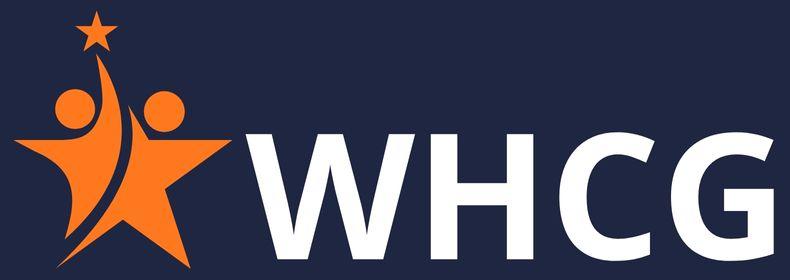I remember the first time I had to make a choice between QuickBooks Cloud Hosting and QuickBooks Desktop. I was juggling multiple financial tasks, my workflow was scattered, and I was feeling the limitations of my old system. I knew my business needed something that could improve efficiency, simplify financial management, and align with long-term business goals. That’s when I started exploring QuickBooks options, and the journey was eye-opening.
Key Differences Between QuickBooks Cloud Hosting and Desktop
Accessibility and Flexibility in the Cloud
One of the first things I noticed is how accessibility and flexibility differ between QuickBooks Online and Desktop. With QuickBooks Online, I could access my financial data from the office, at home, or even while traveling, as long as I had an internet connection. The cloud-based nature of Online made collaboration seamless, enabling real-time updates for my team, no matter where we were.
On the other hand, QuickBooks Desktop is tethered to a specific device, which means my mobility was limited. For businesses with a distributed workforce, Desktop can sometimes feel constraining, whereas Online provides an agile, dynamic workflow that adapts to various business needs.
Software Hosting: Cloud-Based vs Local
Another major distinction is in hosting. QuickBooks Online is cloud-based, handling software remotely. Automatic updates minimize the burden on my local device, allowing smoother operations and reducing downtime. QuickBooks Desktop, however, relies on local hosting, which requires manual updates and places a heavier load on my device’s resources.
The difference in hosting also impacts scalability and integration. QuickBooks Online integrates easily with other cloud-based applications, creating a connected ecosystem that ensures data consistency across platforms. Desktop, while robust, often requires additional steps to integrate with other tools.
Financial Management on the Move
As someone constantly managing finances from different locations, QuickBooks Online became my go-to. Its cloud-based setup allowed me to handle accounting tasks on various devices, ensuring I never missed a crucial financial update. Desktop, while reliable, limited me to a single workstation, which was a significant consideration when urgent financial decisions were needed or collaboration with my team was required.
Cost Considerations
Financial strategy played a big role in my decision. QuickBooks Online operates on a subscription-based model with recurring monthly fees, which provides flexibility in budgeting and spreading costs over time. QuickBooks Desktop follows a traditional one-time purchase model, with additional costs for future updates. Understanding these budgetary constraints helped me align my choice with long-term financial planning.
Here’s a quick comparison:
- QuickBooks Online: Subscription-based, recurring monthly fees, cloud-based, flexibility, seamless updates
- QuickBooks Desktop: One-time purchase, upfront costs, local device, manual updates, offline functionality
Security Measures
Security is paramount when handling sensitive financial data. QuickBooks Online leverages secure data centers and encryption protocols, making data protection and compliance straightforward. QuickBooks Desktop places security responsibility on the user, requiring proactive measures like regular backups and security software installations. For businesses with strict data protection needs, this distinction can be decisive.
Advantages and Disadvantages
Areas Where Desktop Excels
- Offline accessibility for areas with unreliable internet
- One-time cost structure, suitable for businesses preferring upfront investment
- Mature feature set for intricate accounting functionalities
- Extensive customization options for industry-specific needs
- Handles large file sizes effectively
Disadvantages of Desktop
- Limited accessibility tied to a specific device
- Manual updates can be time-consuming
- Collaboration challenges for distributed teams
- Dependency on local resources may lead to performance issues
- Delayed access to new features requiring installations
Enhancing Desktop with Cloud Hosting
For businesses looking to leverage both worlds, combining QuickBooks Desktop with cloud hosting can offer a comprehensive solution. This hybrid approach allows companies to retain robust Desktop functionality while gaining cloud-based accessibility and real-time collaboration benefits.
Similarities and Differences Between Online and Desktop
Both QuickBooks Online and Desktop share core functionalities:
- Invoice creation
- Expense tracking
- Financial reporting
- Data import/export capabilities
However, they differ significantly in:
- Accessibility and hosting: Online uses cloud technology; Desktop is locally hosted
- Cost structures: Online subscription vs. Desktop one-time purchase
- Collaboration dynamics: Real-time cloud collaboration vs. device-tethered teamwork
- Security measures: Cloud-based protocols vs. user-managed protections
Choosing the Right Platform
The choice depends on your unique business requirements:
- QuickBooks Online is ideal for businesses needing flexible accessibility, real-time collaboration, and a subscription-based model.
- QuickBooks Desktop suits those requiring offline functionality, one-time costs, and device-tethered financial management.
FAQ Highlights
- Cost per month: Cloud hosting fees vary depending on provider and plan
- Hybrid use: Yes, you can combine QuickBooks Desktop with cloud hosting for offline capabilities plus cloud collaboration
- User limits: QuickBooks Online accommodates varying numbers of users depending on the subscription plan
- Desktop version pricing: Pro $299.95, Premier $499.95, Enterprise $1091.70
Final Words
Navigating QuickBooks Cloud Hosting vs Desktop taught me that there isn’t a one-size-fits-all solution. The decision boils down to your business’s financial strategy, workflow requirements, and team collaboration needs. By understanding the strengths, limitations, and integration capabilities of each platform, you can make an informed choice that optimizes efficiency and ensures long-term financial management success.
